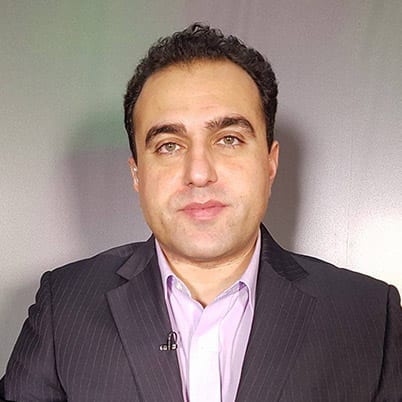The call by the United States late last month for a ceasefire in Yemen initially raised hopes of a possible breakthrough in the nearly four-year old conflict. But even from the outset there were serious doubts about US intentions, not least as US Secretary of State Mike Pompeo placed initial responsibility for a ceasefire on the Houthi rebels who are vastly outgunned by the Saudis, Emiratis and their allies.
Pompeo’s call on the Houthis (properly known as the Ansarullah movement) to cease their attacks on Saudi Arabia and the United Arab Emirates (UAE) before the Saudis and Emiratis cease bombing Yemen, prompted a sharp rebuke from a Houthi spokesman who branded it as a “total farce”.
More broadly, there has been speculation about the timing of the latest US intervention, with some media outlets connecting it to the murder of Saudi journalist Jamal Khashoggi. Others draw a link to the unfolding humanitarian catastrophe in Yemen and the US desire to evade blame for the looming famine.
Read: Saudi-led coalition halts assault on Yemen’s Hudaydah
Whatever the motivation, the US is both unable and unwilling to apply sufficient pressure on its allies to stop prosecuting this brutal war. Absent a comprehensive plan to address Yemen’s underlying political crisis – and one that is driven by the Yemenis themselves – the war is set to grind on at an immeasurable cost for the Yemeni people.
Distorted conflict
One of the reasons it is so hard to imagine a credible solution to the Yemeni conflict lies in the fact that it has been consistently mispresented from the outset. In the West the war is almost always framed as a proxy conflict between Iran and Saudi Arabia, with the latter often presented as a champion of Yemeni sovereignty, at least in the early phase of the campaign.
Whilst it is true that Saudi Arabia began its bombing campaign in March 2015 in part to restore Abd Rabbuh Mansur Hadi to power, nevertheless the real reason behind the Kingdom’s heavy intervention is the desire by the House of Saud to reduce Yemen to a vassal state.
This desire has become even more pronounced since the rise to power of Mohammad Bin Salman who has set out to develop a muscular foreign policy, with disastrous results. As the Yemen war has demonstrated, despite spending hundreds of billions of dollars on its military in the past three decades alone, Saudi Arabia has neither the military prowess nor the strategic knowhow to successfully manage a conflict in its own backyard.
![Saudi Crown Prince Mohammed bin Salman arrives to meet with British Prime Minister Theresa May on the steps of number 10 Downing Street on 7 March, 2018 in London, England [Dan Kitwood/Getty Images]](https://i0.wp.com/www.middleeastmonitor.com/wp-content/uploads/2018/11/GettyImages-928559110.jpg?resize=920%2C614&ssl=1)
Saudi Crown Prince Mohammed bin Salman arrives to meet with British Prime Minister Theresa May on the steps of number 10 Downing Street on 7 March, 2018 in London, England [Dan Kitwood/Getty Images]
Read: Houthi minister defects amid ‘more divisions’ in Yemen
The UAE’s support for southern Yemeni separatists is a major point of contention between the two powers, and one that can potentially touch off another major conflict in Yemen once the current conflict subsides.
In addition, the increasing “privatisation” of the war, as demonstrated by the UAE’s foreigner-led military’s use of mercenaries in Yemen, is causing distortions and complications on the ground whose full repercussions will unfold for years to come.
For example, the UAE’s hiring of American and Israeli mercenaries to assassinate leaders of Al-Islah (the Yemeni branch of the Muslim Brotherhood), was by any measure an ill-thought out policy which not only undermines the quest for political consensus in Yemen, but in fact risks deepening the country’s political crisis.
War without end?
As the battle for the key port city of Hudaydah demonstrates, Saudi Arabia and the UAE continue to flounder in Yemen, as they have neither the tactical and operational capability nor the strategic-level coherence to achieve a breakthrough in this war.
By contrast, the Houthis remain firmly entrenched in Sana’a and continue to demonstrate offensive capability by firing ballistic missiles at high-value Saudi targets deep inside the Kingdom. The Houthis have also reportedly used drones to attack targets in the UAE, notably Abu Dhabi airport.
But it is the threat to attack UAE targets, notably in Dubai, with ballistic missiles which gives the Houthis a decisive psychological edge in the conflict. The Saudis and Emiratis cannot do more than what they have relentlessly done in the past three years, namely to carry out airstrikes. By contrast, the Houthis can dramatically escalate the conflict and massively drive up the costs for both the Saudis and Emiratis – and by extension their Western allies – by attacking the UAE.
#YemeniCrisis
It is this threat of sudden escalation – and associated unpredictability – which is causing neighbouring states, notably Oman, to push for a ceasefire. But any realistic call for a ceasefire must acknowledge the basic facts on the ground, notably the Houthi success in maintaining their grip on Sana’a and much of the north in the face of a long and brutal military campaign.
Additionally, ceasefire efforts must involve Yemenis to the greatest extent possible. As it is now increasingly clear, neither Saudi Arabia nor the UAE care much about Yemen’s interests, only Yemenis themselves can credibly represent those interests.
The warring parties in Yemen stand a much better chance of resolving their differences politically provided foreign powers allow them sufficient space to articulate their grievances and aspirations. For that to even begin to happen Saud Arabia and the UAE must halt their military campaign with immediate effect.
The views expressed in this article belong to the author and do not necessarily reflect the editorial policy of Middle East Monitor.

![Yemenis remove the bodies of those killed in a Saudi-led coalition air strike in Yemen on 13 December 2017 [Mohammed Hamoud/Anadolu Agency]](https://i0.wp.com/www.middleeastmonitor.com/wp-content/uploads/2017/12/2017_12-13-Saudi-led-coalition-airstrike-in-Sanaa20171213_2_27484827_28801458.jpg?fit=920%2C613&ssl=1)

![Yemeni children affected by the Saudi-coalition war - Cartoon [Sabaaneh/MiddleEastMonitor]](https://i0.wp.com/www.middleeastmonitor.com/wp-content/uploads/2018/08/yemen-children-cartoon.jpg?resize=920%2C657&ssl=1)






